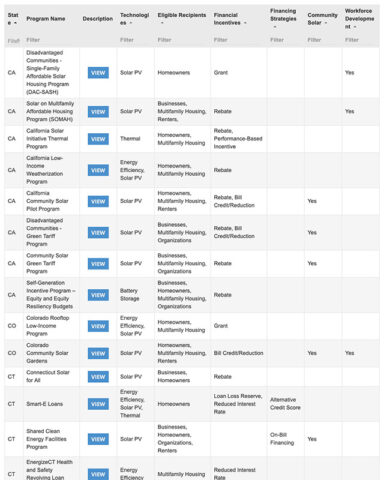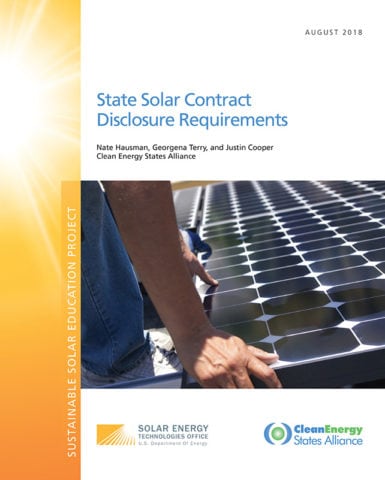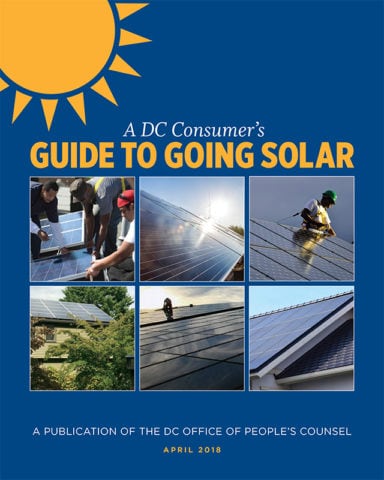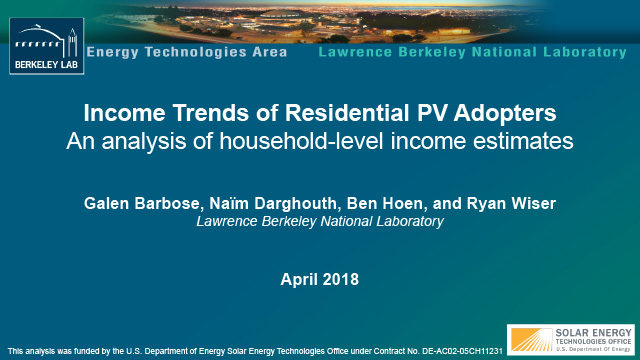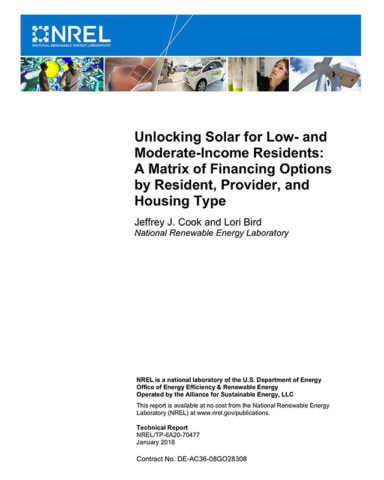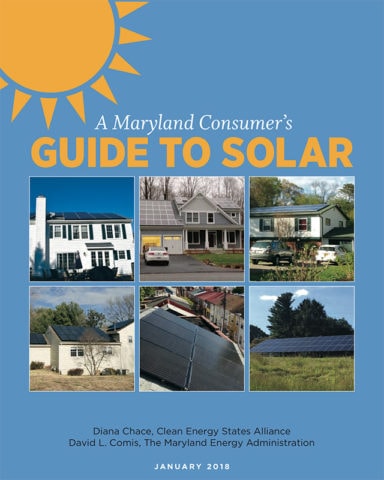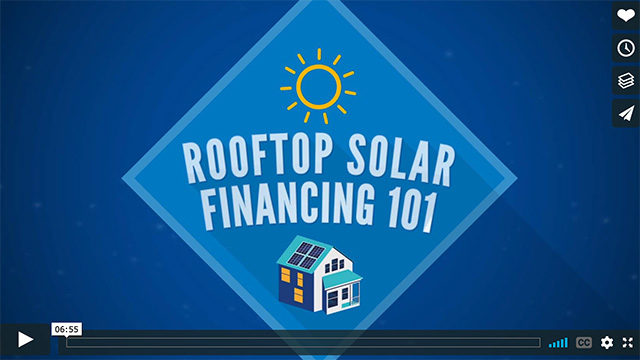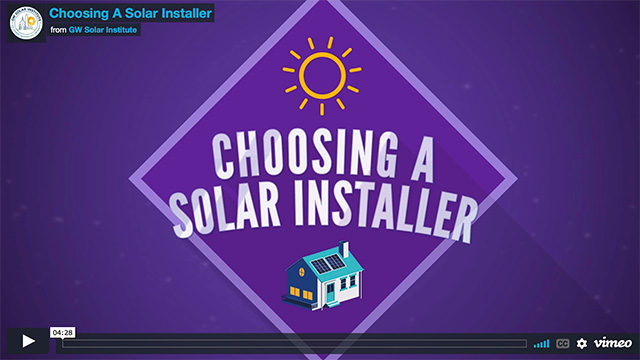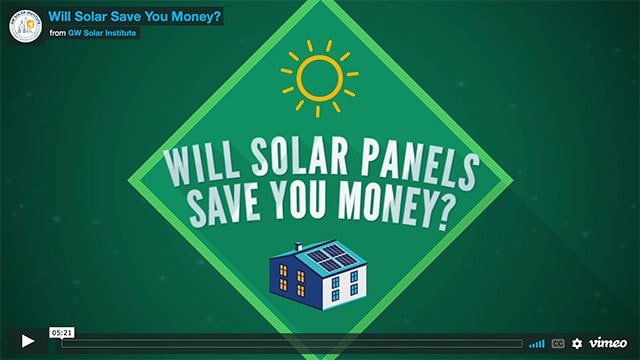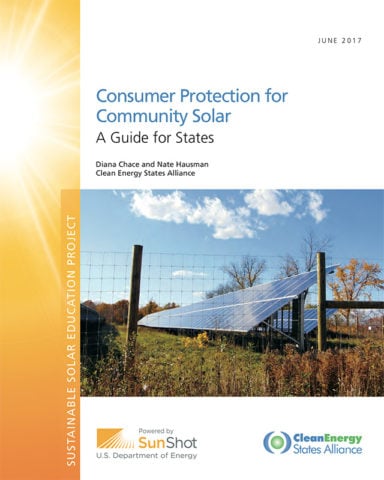Project Menu
Sustainable Solar Education Project - Resources
This directory lists and describes state clean energy programs for low- and moderate-income residents and communities.
A rapidly growing residential solar market has created challenges for solar consumers. With so many households adopting solar and more PV systems installed, there is potential for solar consumer protection issues to emerge.
This guide aims to help DC consumers make an informed decision in considering whether to install a solar energy system in their home.
This report aims to establish basic factual information about income trends among U.S. residential solar adopters, with some emphasis on low- and moderate-income households.
This report identifies the most promising strategies state policymakers might consider using to finance PV for low- and moderate-income customers.
The Maryland Energy Administration and the Clean Energy States Alliance have developed a Maryland Consumers Guide to Solar, designed to be a resource for Maryland residents considering home solar photovoltaic systems.
This video introduces three common solar financing methods: loans, leases, and power purchase agreements (PPAs) and briefly explains some of the advantages and disadvantages of each.
This video offers advice for customers in selecting a solar contractor, questions that customers should ask a solar contractor, and information that should be included in a solar contractor’s bid.
This video discusses key questions homeowners should explore when assessing whether going solar makes financial sense, including how the cost of solar compares to savings from solar, how the federal tax credit works, and the extent to which a homeowner’s electricity bill can be offset by solar.
This guide discusses consumer protection issues that may arise in community solar projects for residential consumers, and the role states can play in ensuring appropriate consumer protections.

